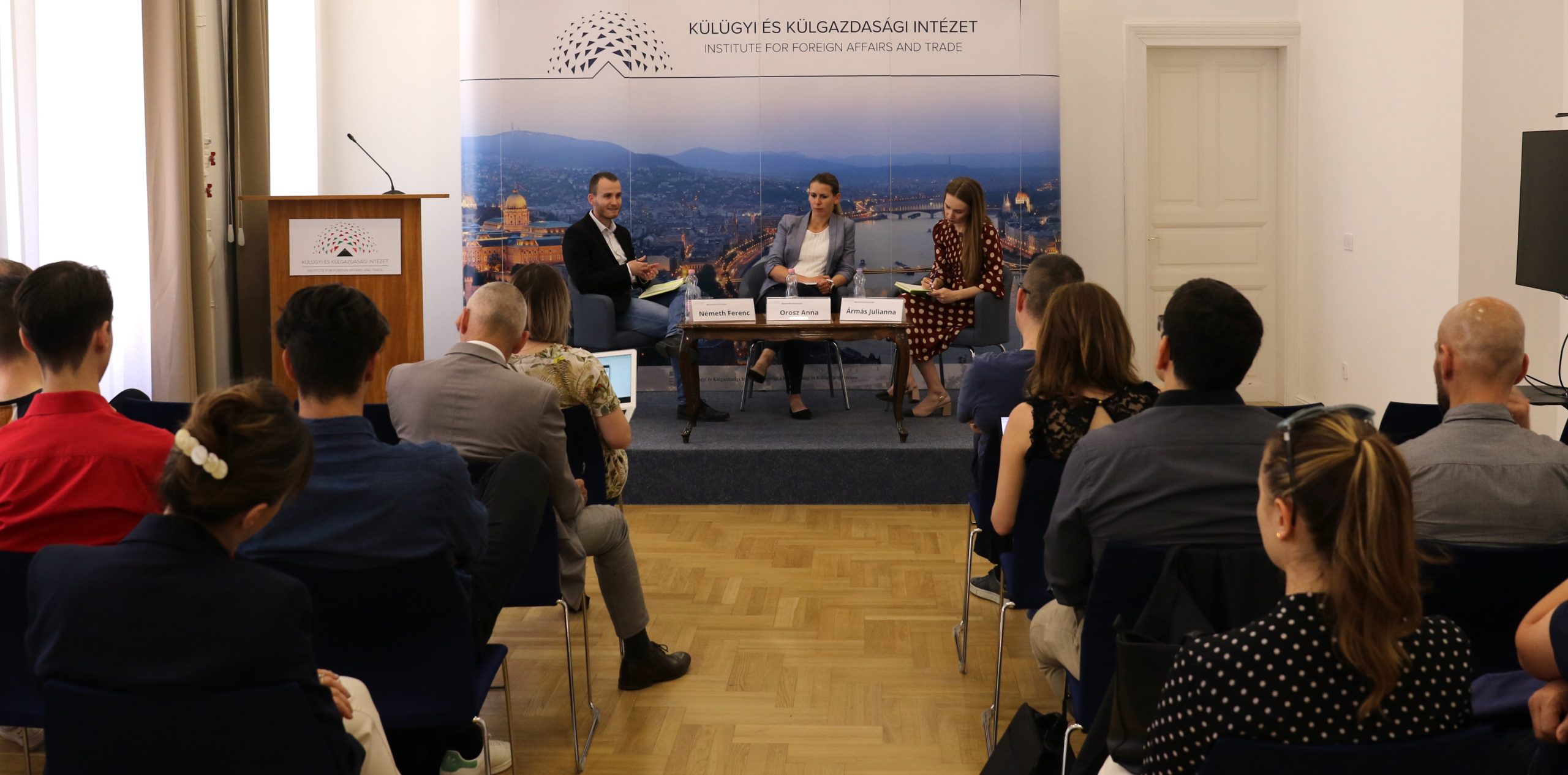On 1 June, the Hungarian Institute of International Affairs (HIIA) held a roundtable discussion entitled “Protests in North Kosovo, demonstrations in Serbia”. Participants included Ferenc Németh, Programme Manager and Research Fellow at HIIA and Anna Orosz, Research Fellow at HIIA. The event was moderated by Julianna Ármás, Research Fellow at HIIA.
Following the local elections in four Serb-majority municipalities in Kosovo, which were boycotted by local Serbs, unrest broke out, with the events in Zveçan receiving the most media attention. Although KFOR troops guarded the newly elected Albanian mayor’s offices, but on 29 May, Serb protesters clashed with peacekeeping troops, triggering a strong reaction in politics and the media.
Anna Orosz noted that in recent years, the media has reacted in a similar manner to all the demonstrations in Kosovo, however, the Balkans are no longer Europe’s classic “powder keg”. Serbia has experienced sanctions in the 1990s and Kosovo is aware that it cannot maintain its current state without the international community.
The school shootings in Belgrade have made the domestic political situation in Serbia tense lately, but the events in Kosovo have resulted in that the international press no longer discuss the Serbian domestic events. At the same time, Kosovo’s Prime Minister Albin Kurti has managed to get Moscow and the United States to blame the same party, Kosovo, for the violence in North Kosovo.
The events in North Kosovo and all similar events temporarily halt the Belgrade-Pristina dialogue, usually for months and sometimes for years. According to Ferenc Németh, even if the parties do sit down for talks again, they will first find some way to resolve the current situation, which has been the typical crisis management approach of the dialogue in recent years. Despite this, no major internal political realignments are expected in either country. In Kosovo, the perception of the Belgrade-Pristina dialogue is not positive, so Kurti has not lost his popularity. In Serbia, if snap parliamentary elections were to be held, it is almost inconceivable that Belgrade will show any willingness to make amends with Pristina. The international community’s attitude towards dialogue is also volatile, and in 2024 there will be elections not only in the EU but also in the United States, which will also draw the attention away from the Western Balkans.
The discussion also touched on Hungary’s involvement as the Western Balkans is a foreign policy priority for the country. Previously, Kosovo was considered a safe mission destination, an illusion that has been shattered by recent events. Given the heated situation, many countries might want to consider sending their own troops to Kosovo. The speakers agreed that for Hungary, however, guaranteeing peace and security in Kosovo, and more broadly in the Western Balkans, remains an important objective, and it is likely that Hungary will continue to seek a prominent mission role.
Photos by Hungarian Institute of International Affairs (HIIA)

